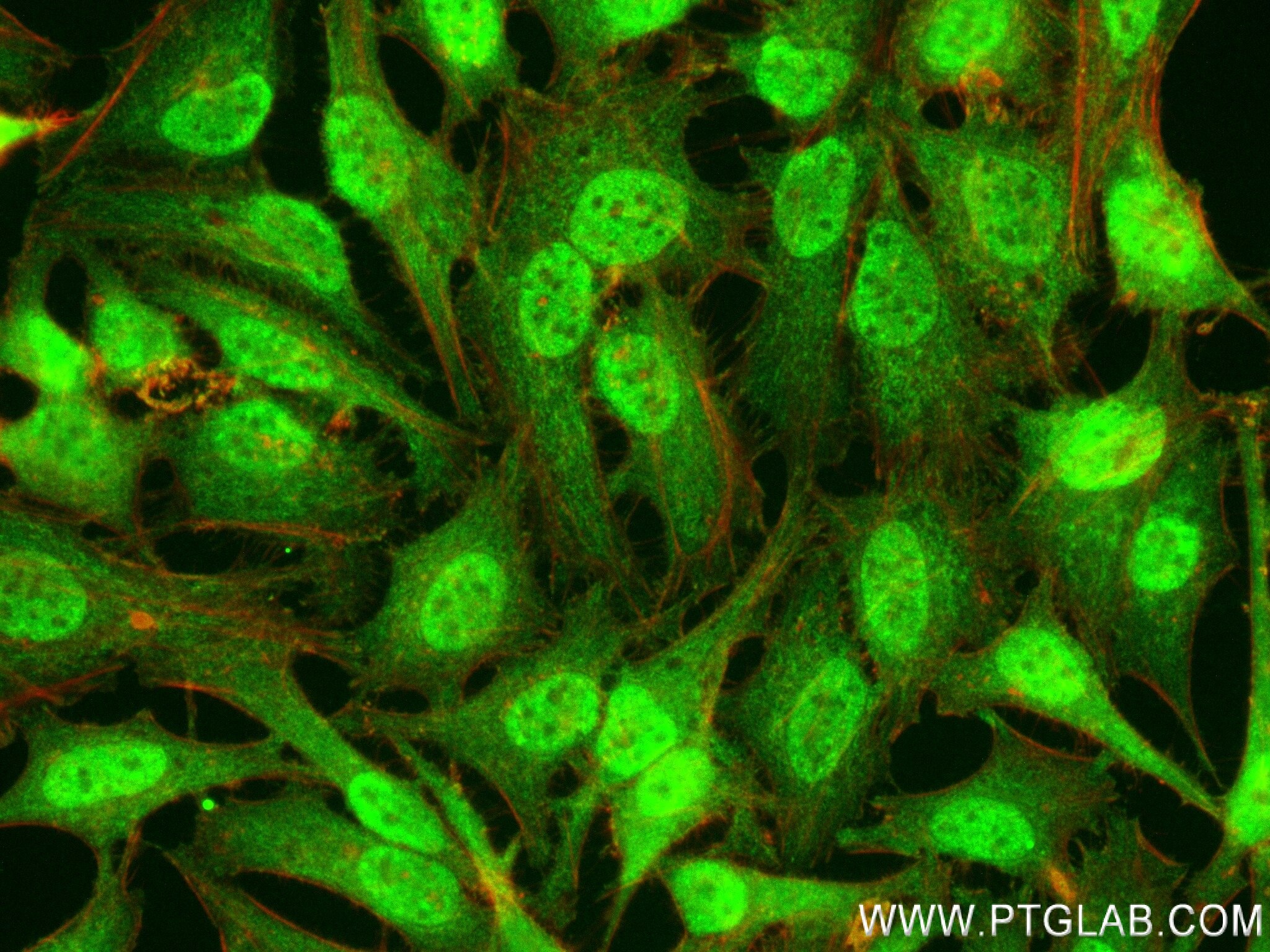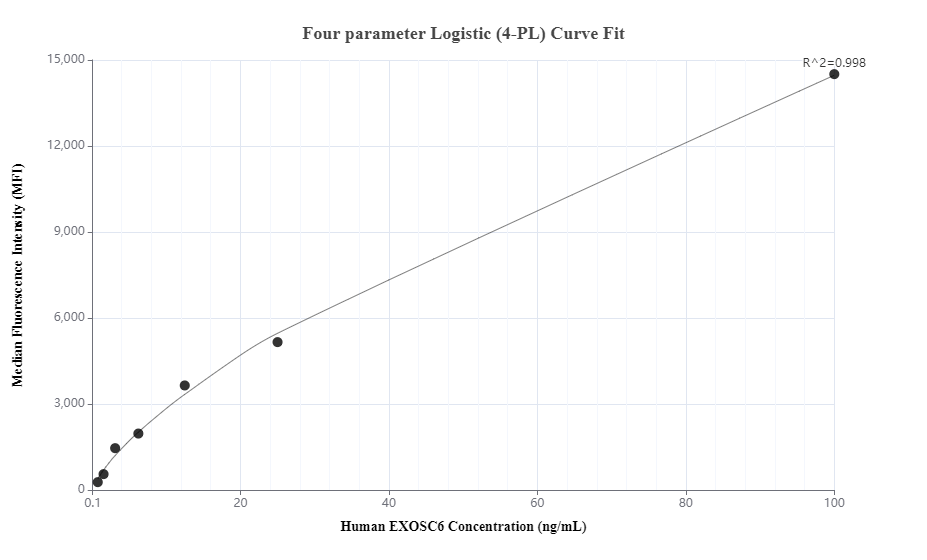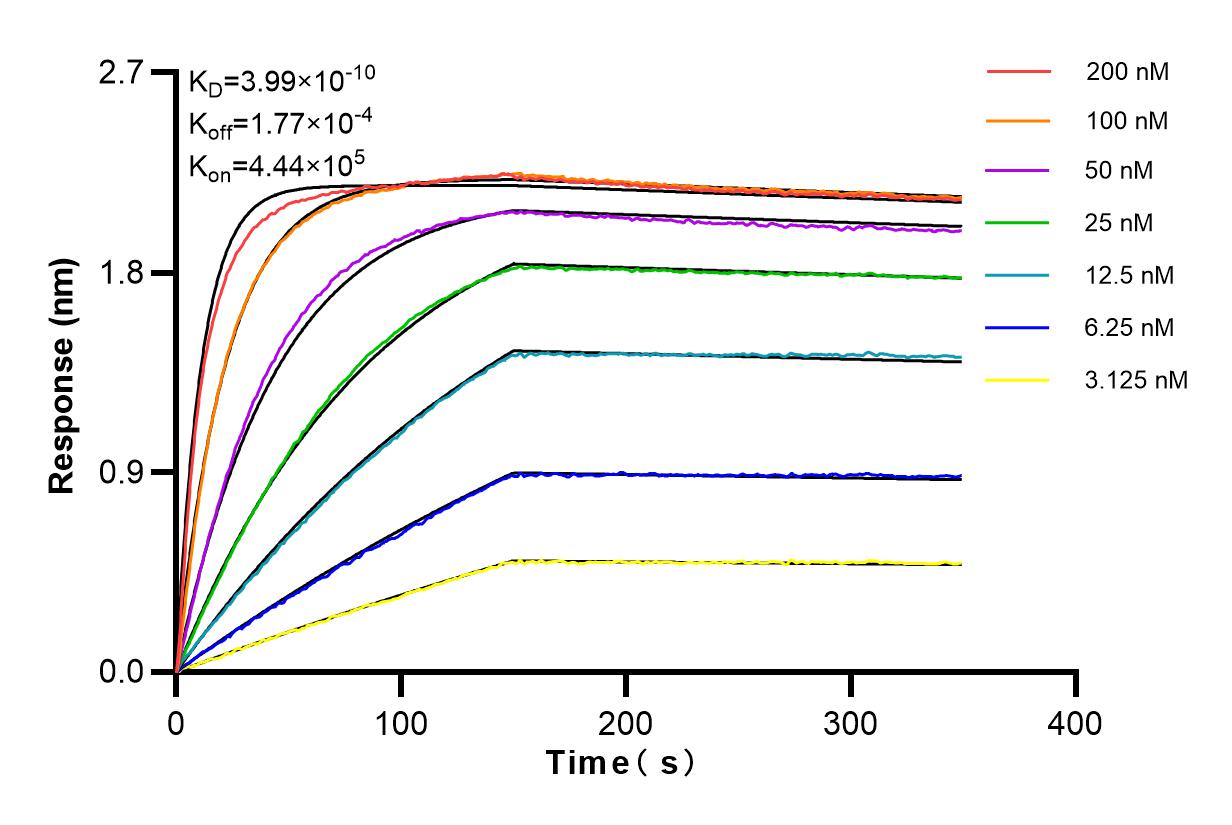Product Information
84346-2-PBS targets EXOSC6 as part of a matched antibody pair:
MP01222-1: 84346-2-PBS capture and 84346-1-PBS detection (validated in Cytometric bead array)
Unconjugated rabbit recombinant monoclonal antibody in PBS only (BSA and azide free) storage buffer at a concentration of 1 mg/mL, ready for conjugation. Created using Proteintech’s proprietary in-house recombinant technology. Recombinant production enables unrivalled batch-to-batch consistency, easy scale-up, and future security of supply.
This conjugation ready format makes antibodies ideal for use in many applications including: ELISAs, multiplex assays requiring matched pairs, mass cytometry, and multiplex imaging applications.Antibody use should be optimized by the end user for each application and assay.
| Tested Reactivity | human |
| Host / Isotype | Rabbit / IgG |
| Class | Recombinant |
| Type | Antibody |
| Immunogen | EXOSC6 fusion protein Ag33513 Predict reactive species |
| Full Name | exosome component 6 |
| Calculated Molecular Weight | 28kd |
| Observed Molecular Weight | 28-32 kDa |
| GenBank Accession Number | NM_058219 |
| Gene Symbol | EXOSC6 |
| Gene ID (NCBI) | 118460 |
| Conjugate | Unconjugated |
| Form | Liquid |
| Purification Method | Protein A purification |
| UNIPROT ID | Q5RKV6 |
| Storage Buffer | PBS only , pH 7.3 |
| Storage Conditions | Store at -80°C. |
Background Information
EXOSC6 (exosome component 6), also known as p11 or MTR3. The calculated molecular weight of EXOSC6 is 28 kDa. And it has low tissue specificity. The gene product constitutes one of the subunits of the multisubunit particle called exosome, which mediates mRNA degradation. It is also a component of the RNA exosome complex (PMID: 29906447). The composition of human exosome is similar to its yeast counterpart. EXOSC6 is homologous to the yeast Mtr3 protein. Its exact function is not known, however, it has been shown using a cell-free RNA decay system that the exosome is required for rapid degradation of unstable mRNAs containing AU-rich elements (AREs), but not for poly(A) shortening. The exosome does not recognize ARE-containing mRNAs on its own, but requires ARE-binding proteins that could interact with the exosome and recruit it to unstable mRNAs, thereby promoting their rapid degradation.







